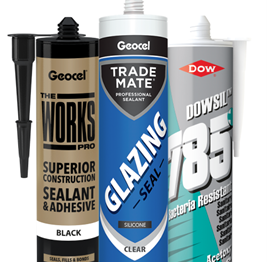Can you tell us about All Mastic and the history of the company?
All Mastic began life back in 1992, purely as a sealant application company. The then Managing Director Philip Bell had a dual role of running both All Mastic and acting as Chairman of the Association of Sealant Applicators (ASA). In 1998, the CITB approached the ASA to help formulate a new NVQ qualification in joint sealant application. This led to All Mastic becoming the NVQ training provider on behalf of the ASA, running all courses through their headquarters in Portishead near Bristol. Moving onto the year 2000, the CITB approached the ASA again to set up an apprenticeship scheme which went onto become the CITB SAP Apprenticeship, a scheme designed for bespoke trades within the construction industry. All Mastic were there to provide all the training for these young trainees. Due to the decline in ASA membership, we at All Mastic now work with the CITB directly as the UK’s only training provider for the apprenticeship scheme.
Personally, I joined All Mastic in 1994 as a trainee and was actually the first NVQ apprentice in the UK – the guinea pig! I stayed with the company for 12 years before leaving to start my own business, which All Mastic later bought. I then returned as a Contracts Manager, later Director and now part owner of the business.
Why did you choose to set up a training academy?
The main reason is because sealant application had always been looked at as a labourer’s job and there was a big drive to establish it as a standalone trade within the construction industry. We set up the academy to get away from the idea that any old Tom, Dick or Harry could do sealant work, feeling strongly that operatives needed to be properly trained to achieve a high quality finish when applying sealant.
We often get people that interview for jobs on the application side of our business who’ll say “I know how to do sealant work”, but as soon as they start with us it’s pretty clear that they don’t. Anyone can squirt sealant around a window, but what you are looking for is the perfect finish. The key is to be fast and neat, if you can do that you are worth your weight in gold as a sealant applicator and you will make a lot of money in the industry.





